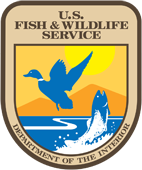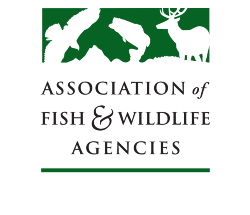When to Leave the Nest - Retention Without Support After Mentoring
Strategic Priority
Recruitment, Retention, Reactivation (R3) - Hunting and Shooting Sports Access and Infrastructure
Project Description
Each year, approximately 600,000 people graduate from hunter education programs. Though only 5% never intended to hunt, nearly 40 percent will never purchase a license (SAF/IHEA 2021). This supports statements that the ORAM model’s ‘Decision to Continue’ stage is a critical point. This project will build on recent SAF/IHEA hunter education research and WMI mentoring research to scientifically identify how states’ and NGOs’ mentoring programs can convert a higher percentage of graduates into confident, independent hunters and consistent license buyers. Targeted insights include identifying the factors and barriers causing new hunters to hesitate and what they need to overcome them. Up to four states in each AFWA region will be recruited to identify new hunters who: 1) enrolled in mentoring programs, 2) continued with or without additional mentoring support, and 3) benefited from multiple mentoring opportunities before gaining confidence to continue independently. These states will be engaged to help identify topics and points to explore. Results will be presented in a succinct, visual format to maximize states' use and shared directly with each state via IHEA and R3 Community websites, webinars, and regional and national R3 meetings. The final deliverable will help states convert thousands of mentoring and hunter education graduates into independent hunters and consistent license buyers.
Project Facts
- Organization Name: International Hunter Education Association
- Organization Status: NGO classified as 501(c)(3)
- State: Montana
- Obligation: $188,341
- Start Date: 01-01-2023
- End Date: 12-31-2023
Results
A significant portion of adults who complete Hunter Education (HE) programs do not subsequently purchase a hunting license in the state where the course was completed. We know a small percentage of these people take the course for reasons other than pursuing hunting—a finding again confirmed by this research. But for most of those who do not purchase a license despite a latent interest in hunting, the driving question is “what might be preventing them from trying?” The Outdoor Recreation Adoption Model (ORAM) suggests that those who do not advance beyond the interest stage in hunting lack the confidence in their knowledge or skills, lack social support to continue, or some combination of both. This project was designed to help R3 professionals better understand the factors hindering many hunter education graduates from becoming independent hunters and how to overcome these hurdles. This project was funded through a 2023 Multistate Conservation Grant awarded to the International Hunter Education Association (IHEA) with research conducted by Southwick Associates and DJ Case & Associates.
We interviewed and surveyed people from 21 participating states across the four AWFA regions who were identified using state HE graduates and license sales data. In phase one of the study, DJ Case conducted interviews with 39 people representing those who had and had not purchased a hunting license in their state following recent completion of a HE course. The interviews were designed to elicit a range of possible factors that were influencing individuals’ decisions to continue or not. The interview results helped to develop a questionnaire that was administered by Southwick Associates to a large sample of recent HE graduates drawn from state data.


